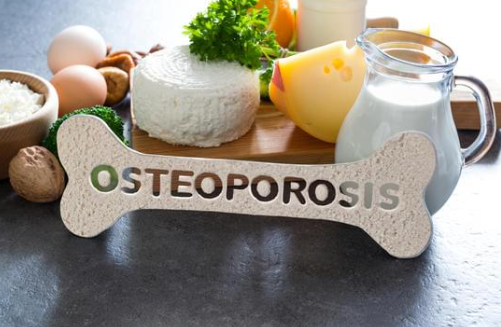
Love them or hate them, functional mushrooms are having a moment. Beyond a side dish or pasta add-in, functional mushrooms are now popping up in coffee, hot cocoa, creamer, jerky, snack bars, trail mix, chips and even chocolate bars. Yes, the functional fungi are becoming as versatile as cauliflower!
So why the rise? Food companies are adding in functional foods with claims that they can supposedly help with certain health conditions; however, the research isn’t always there. Touted to help with a variety of conditions including stress, anxiety, depression and insomnia, amid the COVID-19 pandemic, functional mushrooms jumped at the opportunity to be a solution to rising emotional health issues. Although conditions like stress and anxiety were an issue pre-pandemic, according to the Centers for Disease Control, the rates of anxiety and depressive disorder increased between April to June 2020 compared to the same period in 2019. As such, many people searching for simple ways to alleviate these stresses and other health conditions turned to functional foods—especially mushrooms.
Nutritional Benefits of Mushrooms
Mushrooms provide a plethora of nutrients, including several B-vitamins, selenium, copper, potassium, and vitamin D (when exposed to UV light or sunlight). Three types of mushrooms are most commonly added to functional foods: chaga, Lion’s Mane and reishi.
1. Chaga: This mushroom grows in the forests of northern Canada, Korea, Siberia and Alaska. In Russia and Northern Europe, it’s used in herbal remedies. Chaga contains beta-glucans, which are thought to play a role in lowering cholesterol (Houten, 2006). It has been touted for use in heart disease, diabetes, lung, breast and cervical cancer, liver disease, stomach pain and tuberculosis (Yang, 2019, Lee 2019, lee 2019). However, while products may promise these health benefits, there’s a lack of scientific research with human subjects to back up these claims.
Pregnant and breastfeeding women should avoid chaga, along with folks with autoimmune diseases like lupus or multiple sclerosis, people with diabetes, those with bleeding disorders, or anyone preparing for or recovering from surgery.
2. Lion’s Mane: This mushroom grows on the trunks of decaying hardwood trees. It’s been touted for use in conditions including depression, anxiety, age-related dementia, and Alzheimer’s disease. Some research has been done on cognitive function, however the early research suggests that Lion’s Mane doesn’t improve cognitive function in middle-aged adults. There is also a lack of evidence to back up claims that it helps with anxiety and depression.
Side effects can include stomach discomfort. Taking Lion’s Mane is contraindicated in those who are pregnant or breastfeeding and with health conditions such as diabetes, asthma, bleeding conditions and surgery.
3. Reishi: This tough and woody fungus has a bitter taste. It’s the beta-glucans in this mushroom that have been shown to stimulate the immune system (Batbayar, 2011). And though reishi is touted for use in health conditions including depression, heart disease, diabetes and cancer, as with the aforementioned mushrooms, there is not enough evidence to support use in these conditions.
Reported side effects include dizziness, itching, dry mouth, nausea, rash and upset stomach. Those who are pregnant and breastfeeding shouldn’t rake reishi. In addition, it should be avoided in folks with bleeding disorders, upcoming surgery and low blood pressure. The mushroom can interact with medications for high blood pressure and blood clotting.
When any of these mushrooms are added to foods, the food company can use dried mushrooms, which are usually ground and mixed into the product or mushroom extracts. The extracts, however, don’t include all the benefits of the entire mushroom.
Should You Try Functional Mushrooms?
Mushrooms are certainly healthy, but many of the health benefits touted for these functional mushrooms aren’t backed up by strong scientific evidence. If you choose to try functional mushrooms in a variety of food products, check first to confirm that the actual mushroom is used (verses extracts). In addition, regular intake of enough of the mushroom is typically needed to provide benefits, however there is not enough evidence to know how much you should be taking and for how long. Potential health benefits or not, you can always incorporate this low-sodium, low-calorie and flavor-packed food into your meals, including salads, omelets or in marsala sauce.
References:
1. Yang D., Zhou Z., Zhang L.-J.Progress in Molecular Biology and Translational Science.Volume 163. Elsevier BV; Hoboken, NJ, USA: 2019. An overview of fungal glycan-based therapeutics; pp. 135–163.
2. Houten S.M., Watanabe M., Auwerx J. Endocrine functions of bile acids.EMBO J.
3. Lee DH, Yang M, Giovannucci EL, Sun Q, Chavarro JE. Mushroom consumption, biomarkers, and risk of cardiovascular disease and type 2 diabetes: a prospective cohort study of US women and men. The American journal of clinical nutrition. 2019 Sep 1;110(3):666-74.
4. Lee DH, Yang M, Keum N, Giovannucci EL, Sun Q, Chavarro JE. Mushroom consumption and risk of total and site-specific cancer in two large US prospective cohorts. Cancer Prevention Research. 2019 Aug 1;12(8):517-26.
5. Batbayar, S., Kim, M., & Kim, H. (2011). Medicinal Mushroom Lingzhi or Reishi, Ganoderma lucidum (W.Curt.:Fr.) P. Karst., β-Glucan Induces Toll-like Receptors and Fails to Induce Inflammatory Cytokines in NF-κB Inhibitor-Treated Macrophages. International Journal Of Medicinal Mushrooms, 13(3), 213-225. doi: 10.1615/intjmedmushr.v13.i3.10"
Additional review by PeopleOne Health registered dietitian.













